Raheem Sterling: How a life of adversity shaped the England star to thrive in football and pursue racial justice
The Manchester City forward has been England’s standout performer during the Three Lions’ Euro 2020 campaign so far. Sean O’Grady considers an extraordinarily talented player who has faced more than his fair share of challenges and heartbreak – yet, somehow, always manages to have the last laugh

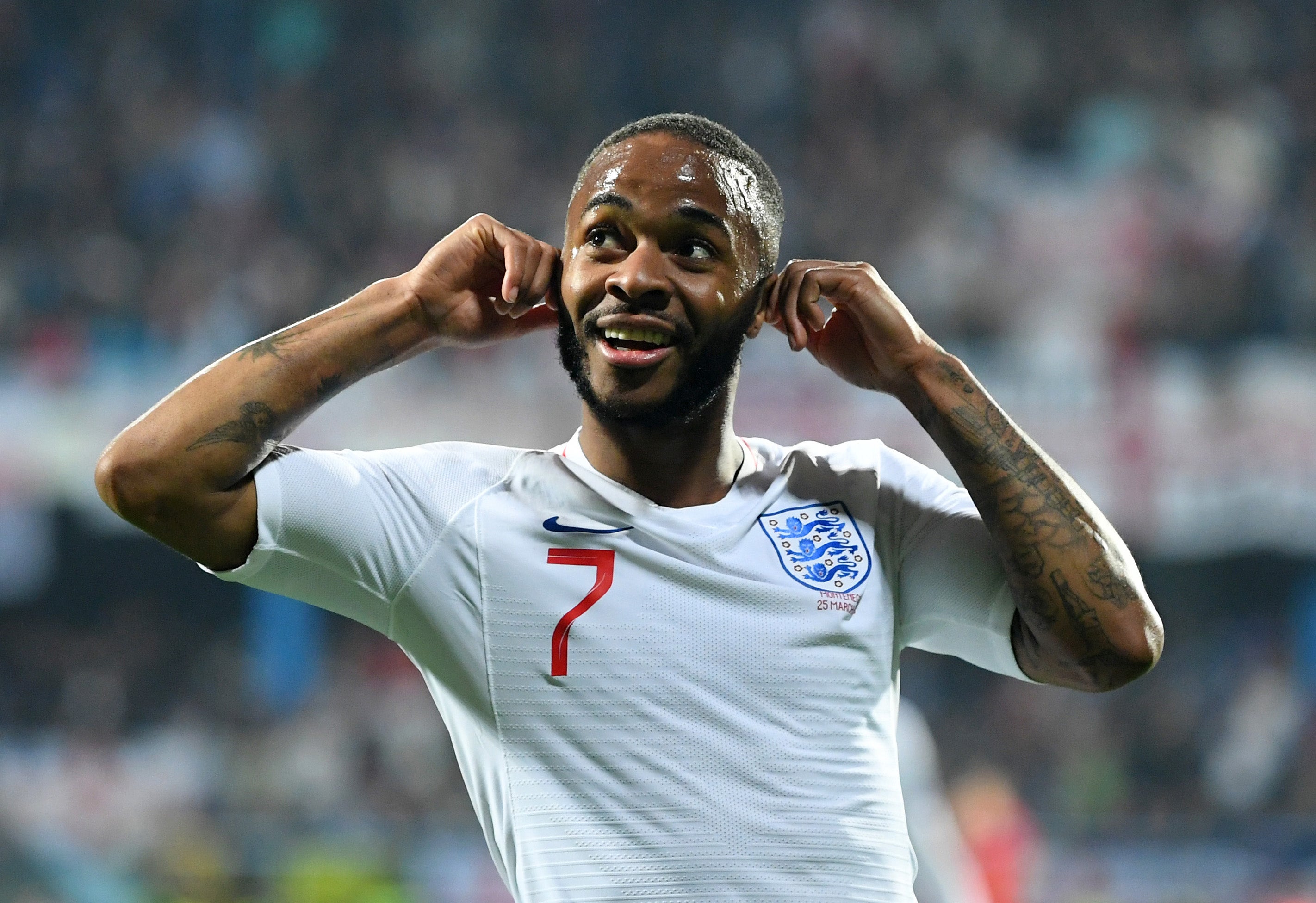
At 26 years of age, Raheem Sterling MBE, as we must now learn to call him, is a man who’s achieved extraordinary things in an extraordinarily short time, and is in understandably high demand. Gareth Southgate included him in his squad for the Euros and the forward has repaid his manager’s trust in him on the pitch, scoring three goals despite doubts about Sterling’s recent form (having scored only once for England and five times for his club since February, albeit he did his bit to help Manchester City to the Premier League title and to reach the Champions League final). There are the usual rumours, more or less well-founded, that the likes of Barcelona and Arsenal have an interest in him. There’s even wild talk about a return to Liverpool, the club Sterling left in controversial circumstances six years ago (Jurgen Klopp has indicated he might take some persuading). Sterling remains popular at Manchester City, though, where his teammates nicknamed him “Heemio” for his Brazilian-style flicks and flair. He’s on about £8m a year, and is renegotiating his deal as he approaches the last two years of his contract. As far as he is concerned, he says he is blanking everything out until the Euros are over. No doubt if he helps bring football “home” he’ll be in even greater demand, and can trade in the MBE for a knighthood when he gets to Buckingham Palace.
Not bad, then, for a boy who started life as part of an extended family of ten occupying a three-bungalow in Maverley, a poor district of Kingston, Jamaica. His was a highly disrupted, not to say traumatic childhood. His mum, Nadine Clarke, came to England when Raheem was a toddler, and he and his elder stepsister Lakima were looked after for a couple of years by his nan, Joy Morris. He and Lakima then joined mum in London, around Neasden and, portentously enough, near Wembley stadium. His footballing talent was evident even back in Jamaica. Joy, by then living in Canada, painted this picture of the embryonic star in an interview with The Sun a few years ago:
“His life hasn’t been easy. It was a tough place to grow up and he had to be sharp. We didn’t have lots of money but we were a very close family and we helped one another out with raising the children.
“His love for football came from playing at the front of the house when he was three.
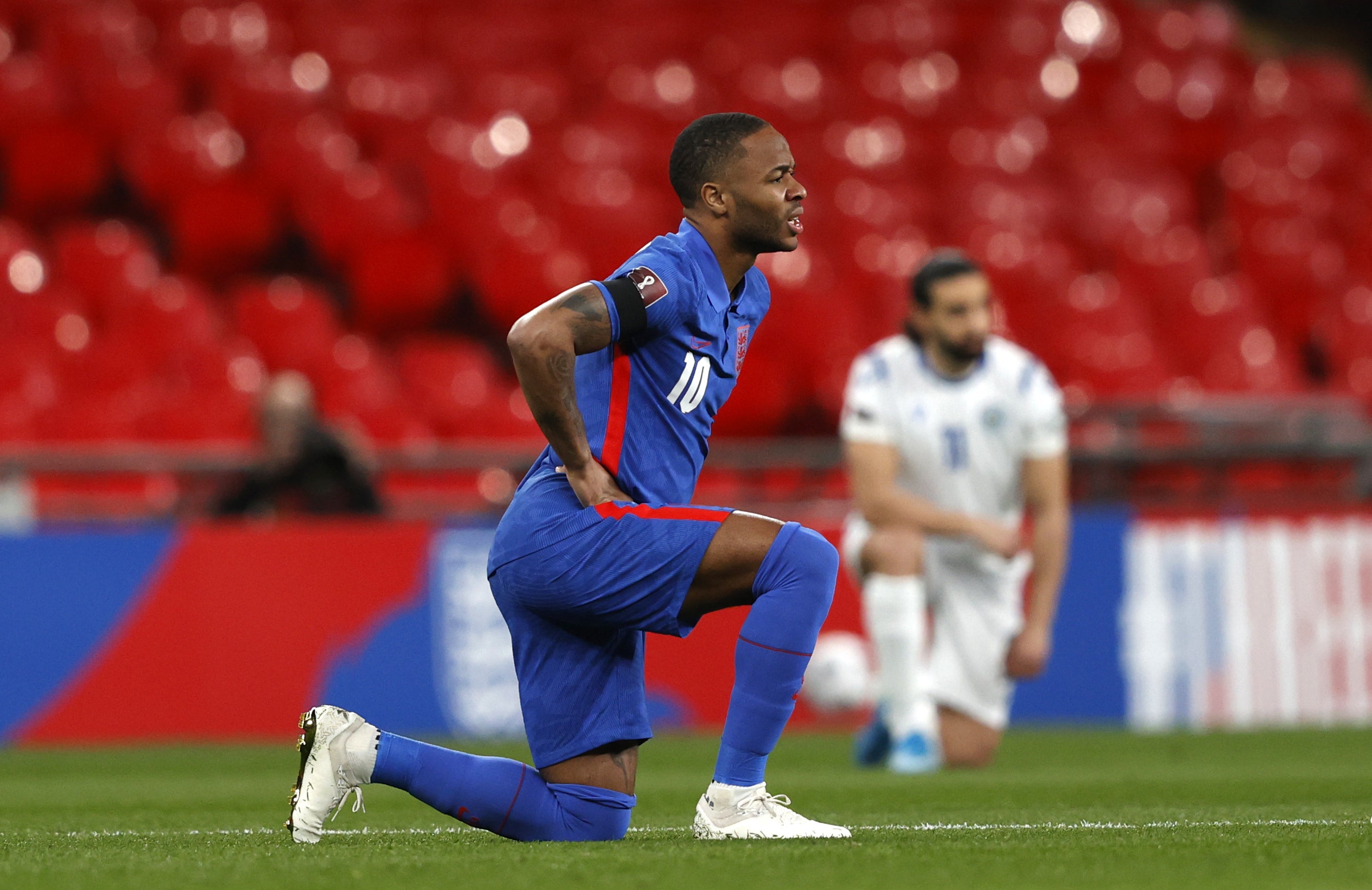
“He used to kick a juice carton around. Football was clearly his big love. When he wasn’t playing he was watching it. The land at the front of the house was turned into a pitch and all the boys used to play there.
“Our road played against the other roads. He always played against bigger kids and would beat them.”
On the pitch even today, naturally bulked out since his early youth, Sterling looks like he has a usefully low centre of gravity, though he’s in fact 5ft 7in. Certainly he doesn’t get intimidated much by hefty defenders, and, whether playing on the right wing or more centrally as a striker, his fast pace has served him and his clubs extremely well. He says he inherited some of that remarkable turn of speed from Nadine, who was an athlete for Jamaica in her day.
Sterling caused a bit of a stir in 2018 when his sock drooped down a bit and a sharp-eyed photographer captured an image on an unusual tattoo on his right leg – a M16 assault rifle, as used by the United States Army. You’d have to admit that it’s not the most charming of designs, but the episode highlighted how touched with violence Sterling’s life has been. Obviously, the press went to town on him, but Sterling had an explanation which he offered on Instagram: “When I was 2 my father died from being gunned down to death. I made a promise to myself I would never touch a gun in my lifetime. I shoot with my right foot so it has a deeper meaning and still unfinished.”
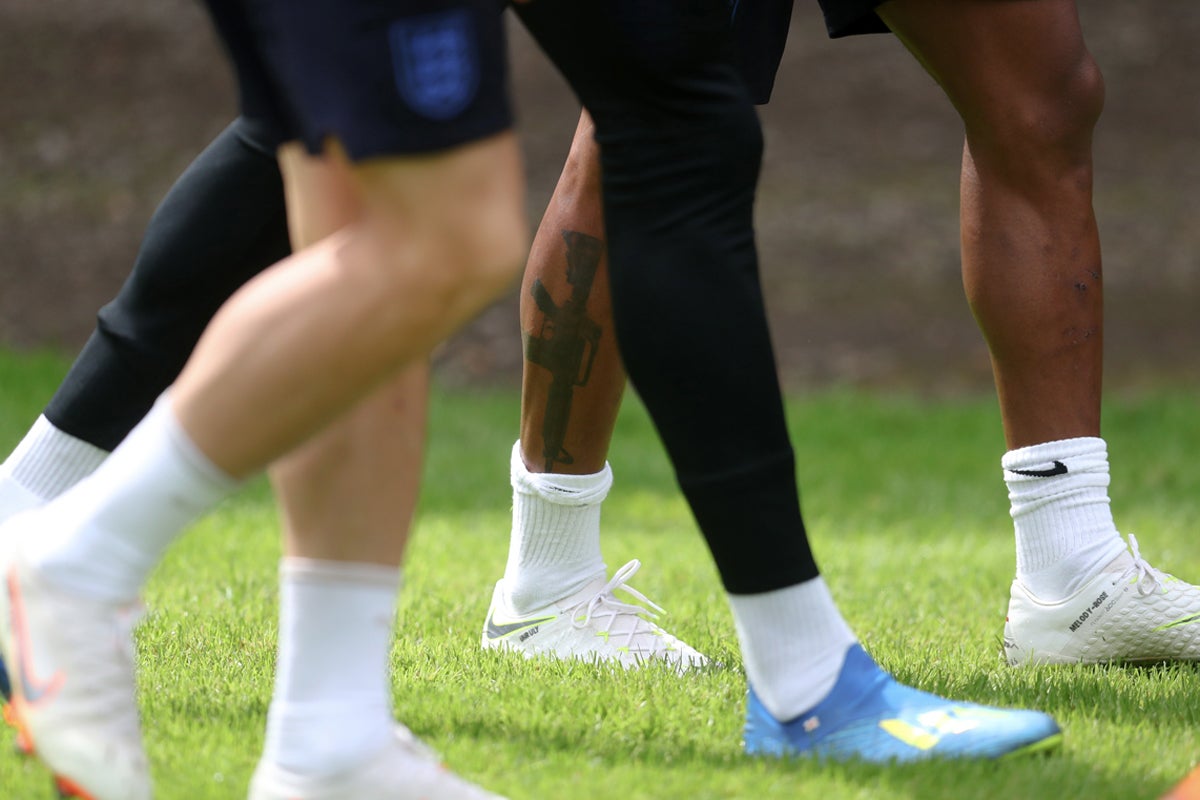
Indeed, in that message Sterling underplayed the tragedy, during which his father had been shot dead in some sort of gangland violence on the doorstep of his father’s (ie Raheem’s grandfather’s) home. That was in 1996, when Sterling was just two years of age, and any kid would find such a loss impossible to bear. It cannot have helped his education, because by his teens he’d been dispatched to a specialist school because of his difficult behaviour. It was there that a teacher made the unkind but uncanny predation to him that “if you carry on the way you’re going, by the time you’re 17 you’ll either be in prison or playing for England”. In November 2012, aged 17, Sterling made his senior team debut in a match against Sweden (and had already been selected for multiple England youth teams). Perhaps the teacher had the same instinct about him as the Queens Park Rangers scouts who signed him up for their youth outfit, aged 10.
Sterling’s treatment by the media at the time of the row about the gun tattoo was telling, and for him surely proof of something he would already be well aware of – the differential treatment that players of colour receive compared with their white counterparts. Had, say, Harry Kane or Jamie Vardy been seen with such a tattoo, there would have been some adverse reaction, but mostly puzzlement and curiosity as to the explanation. For Sterling there was no such leeway. Sterling himself, not shy of confronting an injustice, raised the issue when he pointed out the pejorative treatment meted out by the press to one black player, Tosin Adarabioyo, when he bought a £2million property for his mum, while Phil Foden, who happens to be white, was indulged more generously when he treated himself to a similarly valuable mansion.
It is this sense of racial injustice that has put Sterling in the headlines on the front as well as the back pages. Now, as Southgate and his players come under some at best, misguided, and at worst, malicious criticism and racialised abuse for “taking the knee”, Sterling is defiant. While some play down the linkage between the gesture and the Black Lives Matter (BLM) movement, Sterling is comfortable with it, because he understands what it is and what it is not. Sterling sees BLM for what it is – a broad, loose movement of people and organisations who usher a simple belief in equality and making the life and dignity of a person of colour equal, no more or less, to anyone else. That is why Sterling has expressed “disappointment” about the booing at the gesture by some fans, because he feels they have been misled by the media about what is going on: “It’s not about taking the knee, it’s about giving people the chance they deserve”.
He will be a top, top player because he’s so fast, a dynamic player, has character one against one. He is an excellent guy
Non-violence is the key, as he explained, to his support: “As long as they are doing it peacefully and safely, and not hurting anybody and not breaking into any stores, they continue to protest in this peaceful way.” As far as he is concerned, like many others, the murder of George Floyd illuminated an endemic and pernicious sickness, as he explained to BBC Newsnight last year: “I know this might sound a little cheesy, but the only disease right now is the racism that we are fighting. This is the most important thing at this moment in time because this is something that has been happening for years and years… just like the pandemic we want to find a solution to stop it. At the same time this is what the protestors are doing. They are trying to find a solution and a way to stop the injustice they are seeing, and they are fighting for their cause”.
Using his profile, Sterling has used videos and social media to make his own contribution to the struggle, and his MBE was awarded for his efforts in this direction, rather than services to sport. He has faced down racism many times, most notably when a deranged Chelsea fan verbally attacked him while retrieving the ball during a Premier League match between the London club and Manchester City in December 2018, after which there was a marked lack of action and Sterling decried the “lack of leadership at the top of the game to speak out”. As Ian Wright, who, like so many players has had his share of insults and hurt said at the time, “the bad old days are back”. Something seems to have happened in the game, mirroring society at large, perhaps as a result of political trends, the irresponsible freedoms of social media, and perhaps also, as Sterling argues, because the media itself is “fuelling racism”, consciously or sub-consciously, in the way they report on black players. What is unarguable is that there are few, if any, black faces at the top of the football establishment, in sharp contrast to the pitch. In his words, “I don’t expect no better”.
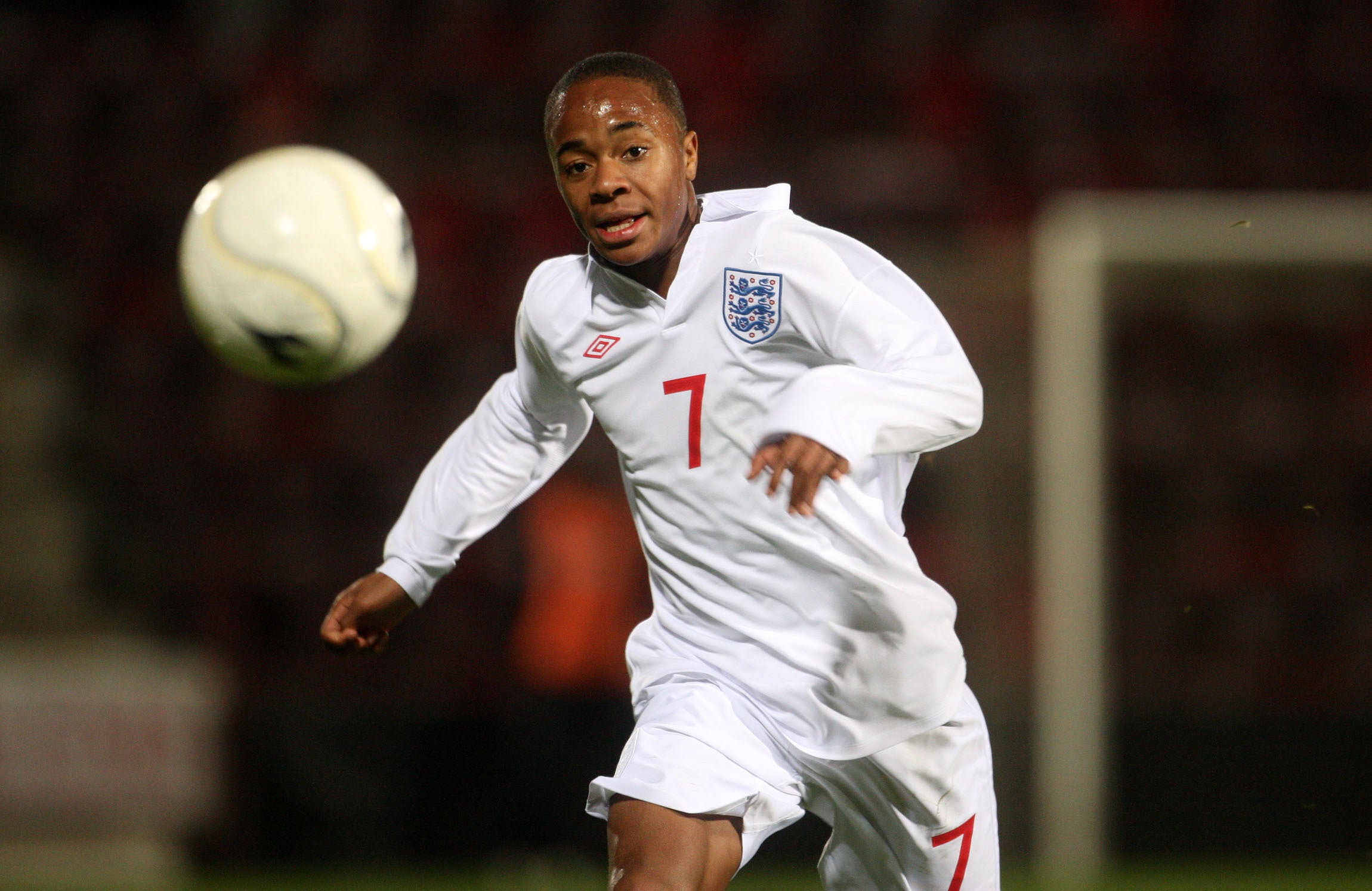
Obviously, too, Sterling has been dispirited by his own treatment, and has had some well-publicised altercations on and off the pitch, but the game has given him much more. All through his career has enjoyed the support, and encouragement of what you might call father figures - Rafa Benitez and Brendan Rodgers at Liverpool, Roy Hodgson and Southgate at England, and of course Pep Guardiola at Manchester City, who is pleased with his protege: “He will be a top, top player because he’s so fast, a dynamic player, has character one against one. He is an excellent guy”.
But there is an influence greater than those guys out together. You see, Sterling, richly tattooed across his compact self, has another rather more sentimental message inscribed on his arm, one that attracts relatively little attention, but which also gives a big clue as to who matters in his life. It reads: “Thank you mama for the nine months you carried me, through all the pain and suffering.”
Nadine is something of a mentor, or momager, for her boy and, it seems, also an insistent one, he admits: “She thinks she’s Jose Mourinho…She’s a big part of my life – she tries to have too much of a say sometimes! I try to listen to her…most of what she says is right.”
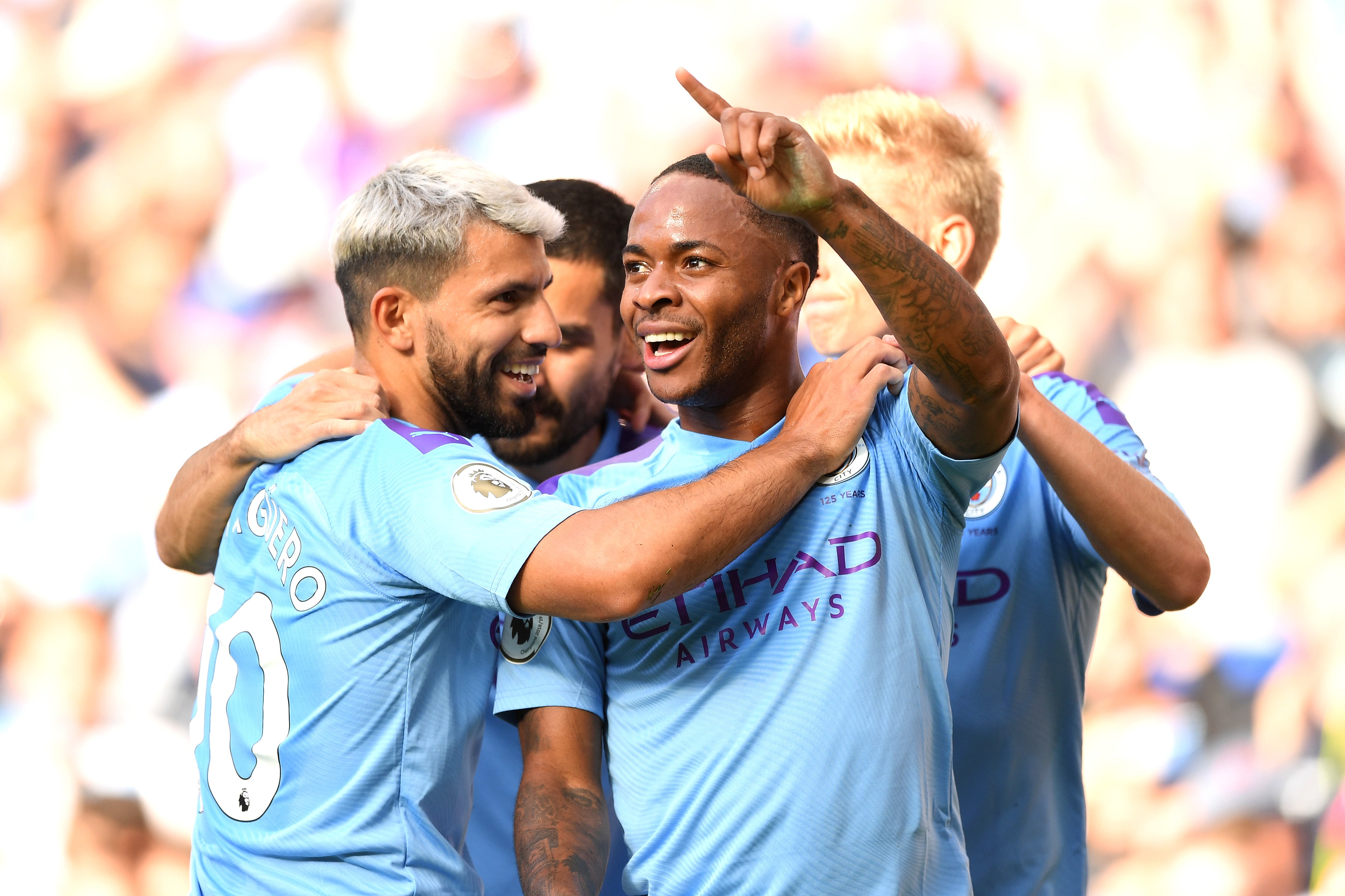
“She’ll certainly tell me when I’m not doing something right. At times she’ll say I’m not listening to her. There’s been a few clashes with her.”
At any rate, she must have been doing something right, because at 15 he was signed by Liverpool from QPR in 2010 for £450,000. After five years of hard work and development under the likes of Rafa Benitez and Brendan Rodgers, and a few rows at the end, he joined Manchester City in 2015 for around £50 million – at that time an all-time record transfer fee for an English player. During his time there he has of course been part of a phenomenal squad that has pretty much carried all before it, both in England and Europe (while still waiting to win that elusive Champions League crown), including being successive Premier League titles in 2018 and 2019 and three in total. It has brought him adulation but also envy and racially-motivated hatred; he has used his global fame and amazing success to help his causes and his family, and he has received official recognition.
Sterling himself now has children: a daughter, Melody Rose, from an earlier relationship, and two sons, Thiago and Thai-Cruz by his fiancee Paige Millian. He has the means to look after those nearest to him, and his career is far from over. What he really seems interested in is trying to make things a bit better for those who were more like he was when he was trying to make sense of life, but who don’t enjoy the gifts, determination and maternal love that gave him such a break. If that makes him just that bit more determined to dribble the winning goal into the back of the net at the Euros, then he’ll never hear a bad word about his tattoos again.

Join our commenting forum
Join thought-provoking conversations, follow other Independent readers and see their replies
Comments